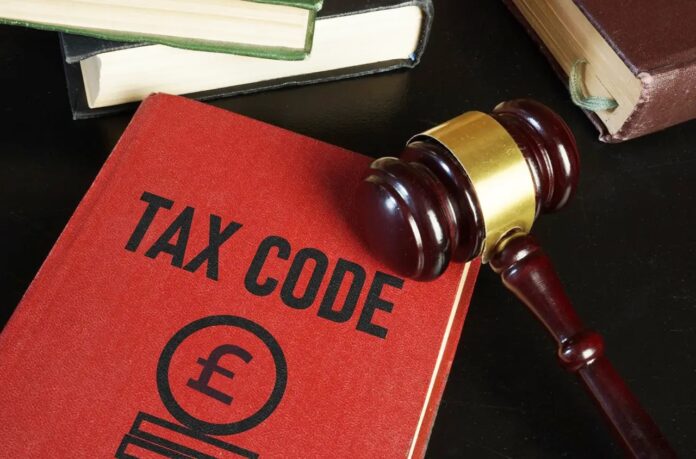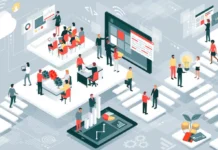Do you really need a CPA if you’re running a solo business? After all, you’re not managing a team of employees or juggling millions in revenue. But here’s the thing: working alone doesn’t mean you should do everything alone. Especially when it comes to your finances.
Whether you’re a consultant, freelancer, coach, or creative, your business is still a business. That means taxes, income tracking, deductions, compliance, and financial planning are all part of the deal. And unless you genuinely love digging into tax codes in your free time, it’s worth asking: is trying to handle it all really saving you money?
Let’s break down why a Certified Public Accountant (CPA) should be one of your first trusted go-tos as a solopreneur.
They Know the Tax Code (So You Don’t Have To)

You might be surprised how many solo business owners overpay in taxes simply because they didn’t know what they could write off. Or worse, they underpay and get hit with penalties. Tax law changes constantly. What you could deduct last year might not apply this year.
A CPA stays up to date on all those details. That means:
- Fewer missed deductions – Home office, mileage, equipment, business meals—there are plenty of legit write-offs, but they have rules. A CPA makes sure you’re not leaving money on the table.
- Fewer red flags – They help you stay compliant and avoid filing errors that could trigger audits.
- Strategic timing – Want to defer income? Speed up expenses? A CPA knows how to time things to your advantage.
This isn’t about gaming the system. It’s about using the rules properly and making them work for you.
Time Saved Is Money Earned
When you’re running the show solo, your time is everything. Every hour you spend trying to figure out your taxes, chasing down receipts, or second-guessing financial decisions is an hour you’re not spending on actual paid work or the parts of your business you enjoy. That’s where looking for a CPA in NYC near me can be a huge help.
Instead of trying to decode tax rules or worry about whether you’ve filed things correctly, you’ve got a professional who already knows the ins and outs.
They’ve done it a hundred times. They know what to look for, what to plan for, and how to keep everything running smoothly.
And the best part? You don’t waste time on the stuff that drags you down. You stay focused on your clients, your creativity, or building whatever’s next.
That’s not just helpful; it’s smart. Delegating your finances doesn’t mean giving up control. It means making room for growth while knowing the numbers are being handled properly in the background.
They Help You Think Long-Term, Not Just in Seasons

Many solopreneurs operate in survival mode, month to month, or even week to week. That’s understandable, especially in the early stages. But if you want to grow, stay financially healthy, or eventually scale or sell, you need to be thinking long-term.
A CPA helps with that shift. Instead of just looking at last year’s numbers, they help you forecast what’s coming and make smarter decisions now that affect your future.
That can include:
- Choosing the right business structure (LLC? Sole prop? S corp?)
- Planning for big purchases or slow seasons
- Setting up retirement accounts or managing contributions
- Understanding the financial impact of a rate increase or service shift
When you’ve got someone in your corner looking at the bigger picture, it’s easier to make confident decisions instead of reactive ones.
Peace of Mind During Tax Season (And All Year)
Tax season can feel like a dark cloud hanging over your head. You know it’s coming. You’ve got scattered receipts, mystery transactions in your bank feed, and that lingering worry: Did I mess something up?
Working with a CPA changes that entirely. Instead of scrambling, you’re prepared. Your books are organized. Your numbers make sense. And if the IRS ever does have questions, you’ve got a pro who knows exactly how to respond.
But here’s the thing, it’s not just about April. Throughout the year, a CPA can help with decisions that affect your taxes.
Should you buy that new laptop before the end of the year? Should you pay yourself a salary? Are you setting aside enough for quarterly payments? These aren’t things to guess at.
You Don’t Know What You Don’t Know
One of the biggest risks for solopreneurs is making decisions based on assumptions. You assume you’re profitable because you have steady clients.
You assume you’re tracking everything because you have a spreadsheet. You assume you’re covered because your taxes haven’t caused problems—yet.
But assumptions can cost you.
A CPA looks at your numbers from the outside, without bias. They spot gaps you’ve missed. They raise questions you hadn’t thought to ask. And they help you understand what’s really going on in your business.
When It’s More Than Just Taxes

Most people think of CPAs as the person who files your taxes once a year and maybe tells you what to pay quarterly. But their skill set goes way beyond that.
Many CPAs offer help with things like:
- Setting up your bookkeeping properly from the start
- Preparing financial statements that lenders or partners might request
- Filing for permits or handling compliance requirements
- Supporting you during audits or responding to IRS notices
- Advising you on how much to pay yourself or how to separate personal and business finances
This kind of support is especially valuable when you’re wearing every hat in your business. You’re the marketer, the service provider, the tech support, and the CFO? That’s a lot to juggle. A CPA takes a big chunk of that load off your plate.
Your Silent Business Partner
Running a solo business doesn’t mean doing everything solo. Some things are worth outsourcing. And when it comes to your finances, a CPA might just be the most valuable person in your corner.
They’re not there to take control of your business. They’re there to help you understand it better, run it smarter, and feel less stressed about what’s going on behind the scenes.
If you’re serious about what you’re building, don’t wait for things to get messy. Bring in someone who knows the numbers so that you can focus on the vision.







